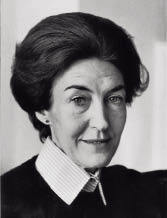The winner of the Lost Man Booker Prize was announced this week. Tobias Hill, one of the judges, appraises the shortlist
By the time you read this, the Lost Man Booker Prize will have been announced. You may know the winner, in which case you have the advantage of me. Though I judged the prize from longlist through shortlist, whittling down 21 novels to six, the ultimate decision isn’t mine to make: like the special 2008 Best of the Booker, the Lost Man Booker 1970/2010 will be determined by public vote. I’m afraid I find myself begrudging you the privilege. Dear reader, I hope you’ve chosen well. I hope you’re satisfied.
In fact I’m hopeful that the public will make a decent choice, not only because they did so in 2008 (a fair, if unadventurous, Booker hat-trick for Salman Rushdie’s Midnight’s Children), but because now, as then, they have some remarkable novels to choose from.
Conceived by Peter Straus (the Booker’s unofficial archivist), the Lost Man Booker corrects a glitch in the prize’s logs: initially awarded retrospectively, the Booker became a prize for best novel in year of publication in 1971, leaving 1970 Bookerless — but not bereft of novels worth the attention, as the six-strong Lost shortlist has made clear. One Nobel for Literature and Booker refusenik (Patrick White), one Booker (J.G. Farrell) and four Booker shortlistings (Nina Bawden, Shirley Hazzard, Muriel Spark and White, again) leaves only Mary Renault unrepresented elsewhere in the history of the prize; all of which might imply that the Lost Man Booker protests its sense of loss too much, but maybe not: how many people now read Patrick White? How many buy him? Publicity gimmick the Lost Booker may have been, but it was a gimmick worth employing.
It was fun to judge. Only those 1970 novels still in print were eligible, which made for a pleasantly slender longlist; the Lost was never the slog I’ve experienced with other judgings. More pleasant still was the absence of hype. The Lost has been a prizegiving shorn almost entirely of marketing and publicity, and that in itself makes it unique in the atmosphere of 2010. Nina Bawden has said that ‘Good writing is good writing. It doesn’t matter when it was written.’
Which is true, and the way it should be; but when it comes to prizes, it does matter when and how a book is published, and regularly matters too much. The Lost Booker was the book and nothing but the book, a kind of blessed silence in which the judges (journalist Rachel Cooke, newsreader Katie Derham and me) squirrelled ourselves away with nothing but good and better writing, reputation being the only lingering noise that might have led to prejudice — not that that helped Iris Murdoch, whose A Fairly Honourable Defeat bowed out early, generally admired but loved by no one.
When I began reading for the prize, it seemed to me that the Lost might present us with a dilemma: to what extent should it be approached as an authentic historical exercise? Should the critical attitudes of 1970 be taken into account to choose the winner of the 1970 Booker? Impossible in any case for three judges born that year to simulate such attitudes, and all the more so since one fine longlisted novel — David Lodge’s Out of the Shelter — was rewritten in 1984, and was now only generally available in that incarnation to its final, public adjudicants.
Brevity was a quality of many books on the longlist. Judging by 1970 standards, obesity is not a problem confined to 21st-century physical health: the novel, too, has put on pounds. Why that should be is interesting. It’s possible that novelists now put more faith in weight than lightness. It’s possible, too, that there is an anxiety to be heard involved. It takes courage to conclude a novel after 100 pages, as Muriel Spark does in her shortlisted The Driver’s Seat.
I have my own favourites, of course. I will be very happy if, by the time you read this, Spark has a posthumous Booker. The Driver’s Seat is as unusual as the Lost Man Booker itself: it strives for perfection in a way that is more reminiscent of a great short story than a novel, but a complexity which magnifies the impact of its spare length many times over. But this is Spark at her best, which is to say that The Driver’s Seat has an unforgiving, nihilistic beauty that repulses even as it attracts. So disturbing is the book that I worry it may not win, after all: The Driver’s Seat is easy to put down in a moment of repulsion, though it is not easy to forget.
I’ll be content, too, if, as I write, Derek Hood, Master Bookbinder, is stitching J. G. Farrell’s Troubles or Shirley Hazzard’s The Bay of Noon into whatever skin or buckram he has chosen for the winner. As an examination of the twilight of the British Empire, Troubles is every bit as good as The Siege of Krishnapur, 1973 Booker winner and shortlisted for the Best of the Booker — better, even; and it has wit, that quality which enriches so much of the very best writing. Hazzard’s novel lacks that, but has such perceptiveness and clarity that I can’t help but love it; and besides, The Bay of Noon would acknowledge the quality of an author still living: of the shortlist of six, only Hazzard or Nina Bawden can give us (and hopefully one of them) that pleasure.
The Lost Man Booker shortlist:
The Driver’s Seat by Muriel Spark;
The Birds on the Trees by Nina Bawden;
Fire from Heaven by Mary Renault;
The Bay of Noon by Shirley Hazzard;
Troubles by J. G. Farrell;
The Vivisector by Patrick White.






Comments